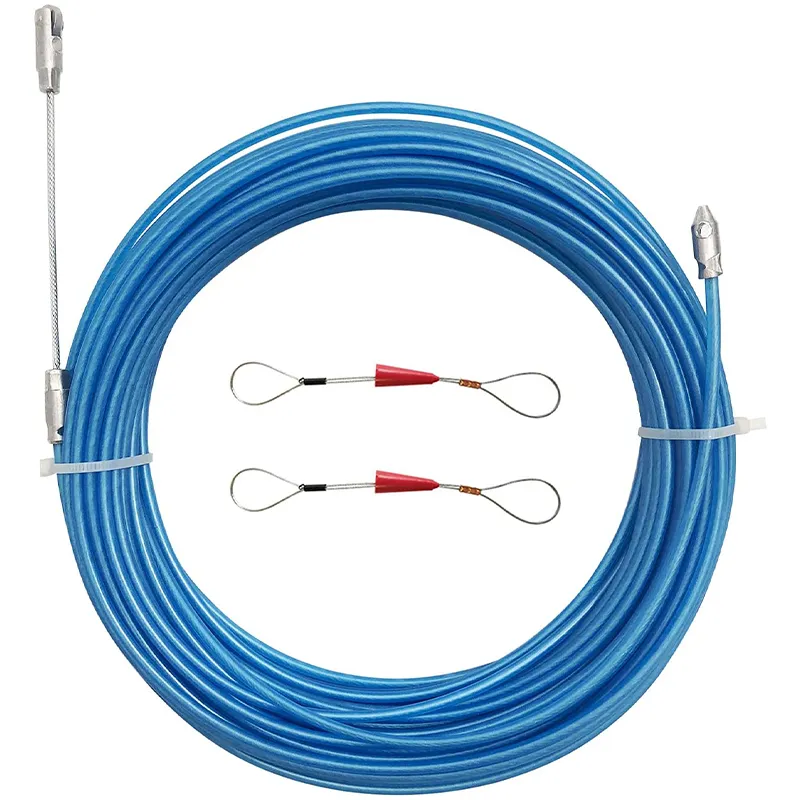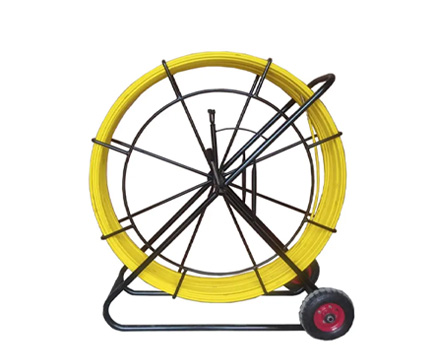
-
 Afrikaans
Afrikaans -
 Albanian
Albanian -
 Amharic
Amharic -
 Arabic
Arabic -
 Armenian
Armenian -
 Azerbaijani
Azerbaijani -
 Basque
Basque -
 Belarusian
Belarusian -
 Bengali
Bengali -
 Bosnian
Bosnian -
 Bulgarian
Bulgarian -
 Catalan
Catalan -
 Cebuano
Cebuano -
 Corsican
Corsican -
 Croatian
Croatian -
 Czech
Czech -
 Danish
Danish -
 Dutch
Dutch -
 English
English -
 Esperanto
Esperanto -
 Estonian
Estonian -
 Finnish
Finnish -
 French
French -
 Frisian
Frisian -
 Galician
Galician -
 Georgian
Georgian -
 German
German -
 Greek
Greek -
 Gujarati
Gujarati -
 Haitian Creole
Haitian Creole -
 hausa
hausa -
 hawaiian
hawaiian -
 Hebrew
Hebrew -
 Hindi
Hindi -
 Miao
Miao -
 Hungarian
Hungarian -
 Icelandic
Icelandic -
 igbo
igbo -
 Indonesian
Indonesian -
 irish
irish -
 Italian
Italian -
 Japanese
Japanese -
 Javanese
Javanese -
 Kannada
Kannada -
 kazakh
kazakh -
 Khmer
Khmer -
 Rwandese
Rwandese -
 Korean
Korean -
 Kurdish
Kurdish -
 Kyrgyz
Kyrgyz -
 Lao
Lao -
 Latin
Latin -
 Latvian
Latvian -
 Lithuanian
Lithuanian -
 Luxembourgish
Luxembourgish -
 Macedonian
Macedonian -
 Malgashi
Malgashi -
 Malay
Malay -
 Malayalam
Malayalam -
 Maltese
Maltese -
 Maori
Maori -
 Marathi
Marathi -
 Mongolian
Mongolian -
 Myanmar
Myanmar -
 Nepali
Nepali -
 Norwegian
Norwegian -
 Norwegian
Norwegian -
 Occitan
Occitan -
 Pashto
Pashto -
 Persian
Persian -
 Polish
Polish -
 Portuguese
Portuguese -
 Punjabi
Punjabi -
 Romanian
Romanian -
 Russian
Russian -
 Samoan
Samoan -
 Scottish Gaelic
Scottish Gaelic -
 Serbian
Serbian -
 Sesotho
Sesotho -
 Shona
Shona -
 Sindhi
Sindhi -
 Sinhala
Sinhala -
 Slovak
Slovak -
 Slovenian
Slovenian -
 Somali
Somali -
 Spanish
Spanish -
 Sundanese
Sundanese -
 Swahili
Swahili -
 Swedish
Swedish -
 Tagalog
Tagalog -
 Tajik
Tajik -
 Tamil
Tamil -
 Tatar
Tatar -
 Telugu
Telugu -
 Thai
Thai -
 Turkish
Turkish -
 Turkmen
Turkmen -
 Ukrainian
Ukrainian -
 Urdu
Urdu -
 Uighur
Uighur -
 Uzbek
Uzbek -
 Vietnamese
Vietnamese -
 Welsh
Welsh -
 Bantu
Bantu -
 Yiddish
Yiddish -
 Yoruba
Yoruba -
 Zulu
Zulu


Jul . 07, 2025 05:16 Back to list
Durable Plastic Driveway Markers for Safe Navigation – Easy Installation & Weather Resistant
- Introduction to plastic driveway markers
and their growing importance - Technical advantages and material innovations in the latest products
- Market and manufacturer comparison supported by data
- Customization possibilities for diverse property needs
- Application scenarios: real-life cases from residential and commercial sectors
- Integration with related solutions: plastic tie machines and plastic coated stainless steel cable ties
- Conclusion summarizing the impact and future trends of plastic driveway markers

(plastic driveway markers)
Unveiling the Significance of Plastic Driveway Markers
In recent years, plastic driveway markers have surged in popularity as essential tools for property demarcation, safety, and aesthetics. Originally a simple roadside aid, they now encompass advanced features that cater to residential, commercial, and municipal needs alike. According to a 2023 landscape safety report, over 67% of property managers in North America consider driveway markers to be critical during snow seasons, while 52% of surveyed households use plastic markers to prevent snow plow damage. This trend is underpinned by substantial material advancements and tailored manufacturing techniques that respond to the demand for both resilience and visibility. As landscaping and safety standards have evolved, so has the technology behind driveway markers, inviting a fresh evaluation of their real-world benefits and integration with accessory products.
Technical Advancements and Material Innovations
Today’s driveway markers exhibit remarkable material innovation. Modern engineering polymers such as high-impact polypropylene and HDPE are now frequently employed, ensuring durability across extreme temperature ranges from -40°F to 140°F. Moreover, reflective coatings constructed using microsphere or cube-corner technology deliver up to 350% improved nighttime visibility compared to older models. UV-stabilized pigments further guarantee a lifespan of 7-10 years without yellowing or brittleness. Manufacturing breakthroughs extend to new anchoring methods. Flexible fiberglass spines integrated with reinforced plastic heads have been developed for ground penetration up to 12 inches, allowing resistance to winds exceeding 60 mph. Innovative connection mechanisms ensure quick deployment, while anti-theft and anti-vandal features are steadily becoming standard.
Market Data: Manufacturer Comparison Table
As the market expands, manufacturers strive to differentiate through product lifecycle, ease of installation, pricing, and compatibility with accessory systems like plastic tie machines and plastic coated stainless steel cable ties.
| Brand | Main Material | Reflectivity (cd/lux·m²) | Warranty (Years) | Easy Installation | Price/100pcs | Accessory Compatibility |
|---|---|---|---|---|---|---|
| Stakeline Pro | Polypropylene + Fiberglass | 620 | 7 | Tool-free push | $65 | Yes (machine, steel cable ties) |
| NorthMark | HDPE | 420 | 5 | Standard | $52 | No |
| ReflectaGuard | Fiberglass Core | 730 | 12 | Quick insert | $87 | Yes (machine-compatible) |
| EcoZone | Recycled Plastic | 375 | 3 | Manual | $39 | Limited |
It is evident from the comparison that advanced markers with composite structures command a higher price but deliver extended warranty and enhanced reflectivity, while entry-level products offer a budget-friendly alternative with moderate specifications. Accessory compatibility, especially with plastic tie machines, is a major differentiator for professional installations.
Customization Solutions for Diverse Property Settings
Not every driveway or perimeter presents the same challenges. Customization has emerged as a fundamental aspect of premium driveway marker offerings. Manufacturers now allow for:
- Choice of length (18”–72”) and diameter
- Custom color coding for zoning differentiation
- Laser-printed or hot-stamped numbering for property identification
- Integrated reflective banding with brand logos
- Configurable anchor designs for soil, asphalt, or gravel settings
Real-World Application: Use Cases Across Industries
In residential environments, homeowners typically leverage plastic driveway markers for snow boundary visualization, landscaping aids, and property line confirmation. In high-traffic regions, such as warehouse ingress, markers paired with reflective tape have reduced vehicle impact incidents by up to 45% according to recent transportation safety studies.
Case Study 1: Suburban Homeowners Association (HOA) Implementation
Over 800 properties upgraded from wood and metal markers to polymer-based models with customized color bands. This transition resulted in a 28% drop in property damage claims during winter months while significantly reducing annual maintenance costs. Automated installation using a plastic tie machine led to a 35% reduction in labor time.
Case Study 2: Logistics Center Perimeter Management
A regional logistics hub used plastic coated stainless steel cable ties to retrofit 1,600 markers at critical access points. The cable ties’ resistance to UV and chemicals ensured durability amidst constant vehicle flow, and the reflective markers improved safety audit scores by over 20%.
These cases demonstrate tangible improvements both in operational efficiency and safety indices, reinforcing the value of well-chosen and properly installed plastic driveway markers.
Integration with Plastic Tie Machines and Cable Ties
An advanced approach to driveway marker installation involves the use of plastic tie machines and plastic coated stainless steel cable ties. These devices automate the process of affixing markers to stakes, fences, or temporary signage, reducing human error and maximizing holding power. The latest machines can bind up to 500 markers per hour and adapt for various tie thicknesses without manual adjustment. Integration with industrial cable ties increases resistance to vandalism and environmental stress, critical for institutional and municipal deployments. Heat-resistant plastics and corrosion-proof stainless steel cores inside the ties guarantee long-term integrity, which is vital for infrastructure subject to rapid weather changes. Compatibility between markers and installation tools is now a key purchasing criterion for facilities managers, supporting sustainable upgrade cycles and safer operational settings.
Shaping the Future: Plastic Driveway Markers in the Modern Landscape
As urban and rural landscapes evolve, the role of plastic driveway markers will only grow in prominence. Their proven track record for safety, adaptability, and cost efficiency makes them invaluable. Ongoing improvements in material science and industrial automation promise even longer service life and application versatility, with specialty ties and programmable marking machines simplifying large-scale deployments. Looking ahead, it is anticipated that smart marker designs—featuring embedded sensors for snow depth or GPS coordinates—will become more prevalent, transforming static pathway markers into intelligent infrastructure components. Until then, property owners and facilities managers can count on today’s robust, customizable, and tool-compatible plastic markers to set the standard for safety and clarity.

(plastic driveway markers)
FAQS on plastic driveway markers
Q: What are plastic driveway markers used for?
A: Plastic driveway markers are typically used to outline driveways for safe navigation, especially in snowy or low-visibility conditions. They help drivers identify boundaries and prevent accidental damage to property. Their bright colors and reflectivity increase visibility.Q: How do you install plastic driveway markers?
A: To install plastic driveway markers, simply push or hammer them into the ground along the driveway's edge. Most markers have a pointed end for easy insertion into soil or gravel. No additional tools are usually required.Q: What is a plastic tie machine?
A: A plastic tie machine is a tool designed to quickly and efficiently tighten and cut plastic cable ties. It streamlines cable management tasks and provides secure fastening. This is especially useful for large-scale installations.Q: Can plastic coated stainless steel cable ties be used outdoors?
A: Yes, plastic coated stainless steel cable ties are suitable for outdoor use due to their durability and resistance to corrosion. The plastic coating adds protection against harsh weather. They are commonly used in securing driveway markers and other outdoor fixtures.Q: Are plastic driveway markers reusable?
A: Many plastic driveway markers are designed to be reusable for several seasons. Simply remove them at the end of winter and store until needed again. Their sturdy construction ensures multiple uses if handled with care.Latest news
duct-rodders-and-conduit-rod-tools
NewsAug.22,2025
ratchet-pullers-and-wire-tightening-tools
NewsAug.22,2025
chain-ratchet-pullers-and-hoist-solutions
NewsAug.22,2025
telescopic-hot-stick-for-electrical-and-high-voltage-use
NewsAug.22,2025
cable-clamp-and-insulated-cable-clamp-systems
NewsAug.22,2025
duct-rodder-conduit-rodder-and-cable-solutions
NewsAug.22,2025








